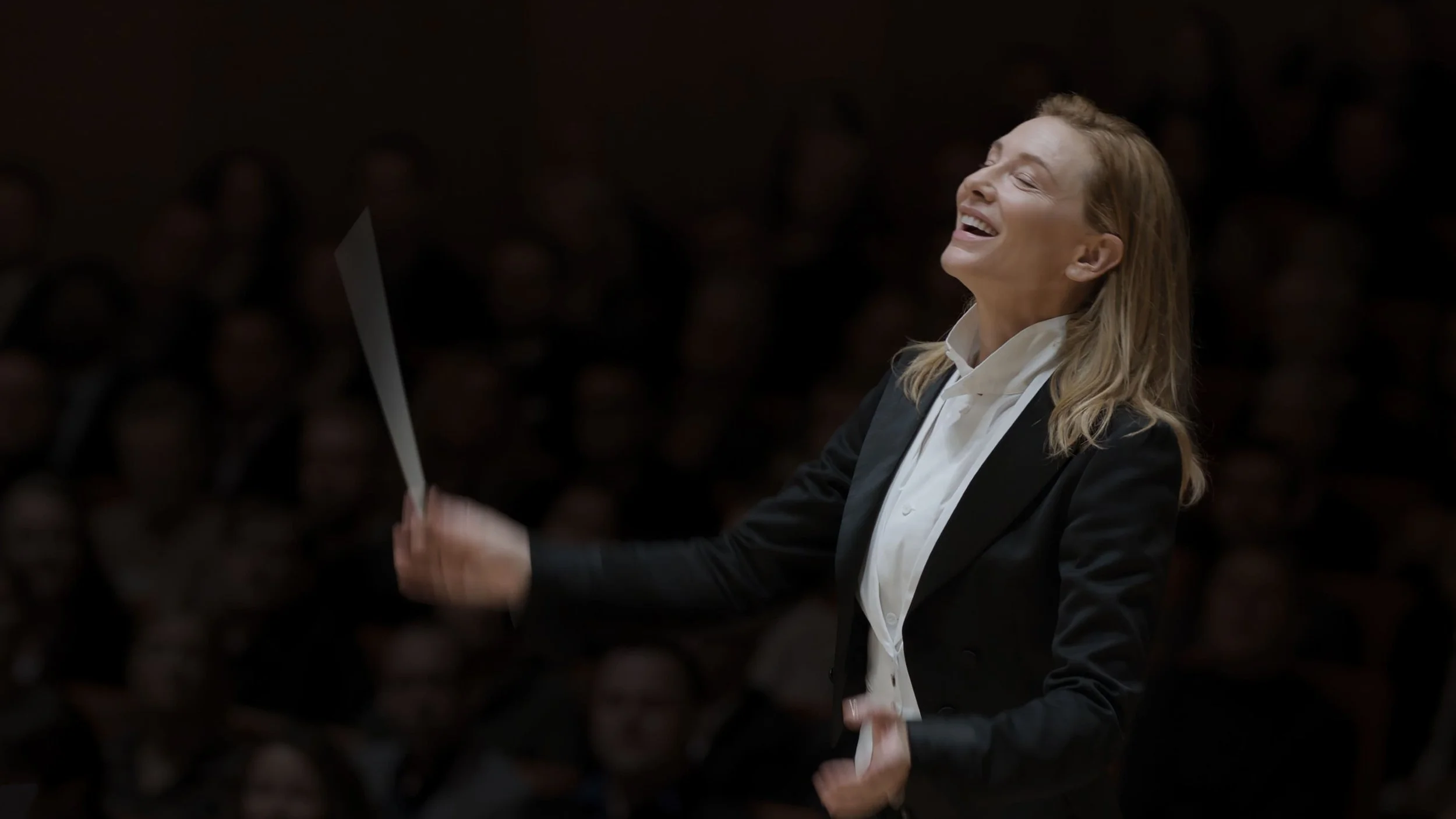Venice 2022: TÁR
Venice / Focus FeaturesMovement of music, the literal flow of bows on string, is a beautiful wonder. Tár knows that. It uses the energy and passion of constructing real art as a catalyst for further complications. They’re in store for Lydia Tár (Cate Blanchett), whose roaring, adamant portrayal is as tense and mild-mannered as it is a show-stealer. Any performance as grand and provocative as this one must rely, intermittently, on a grand supporting cast. That is what Tár is. An exceptional discourse on how good artists handle their bad habits and awful publicity. There is a unique, unpredictable quality to Tár, where director Todd Field navigates the already exploded minefield, looking for new eruptions, new challenges. He, Blanchett and company find room between the percussion and strings for quality, emotional tension.
Physical presence. That is the game Tár plays. In its appearance of Blanchett, in its approach to the controversies that eventually undercut the eponymous character. A switch from a healthy and stern individual to the shell that they could These are notes and topics discussed all before, better to some degree in The Assistant, but for Tár it is the allusion that matters most, not the outcome. Cate Blanchett is the key to unlocking that. Her role here, as ever, is to cause the ripples of tension. A slow burner to say the least, the first hour is spent locking into place the future of these characters, their fates as thickly veiled analysis of musically gifted individuals collide. Art as ego is a beautiful study, but art as power is a scary recognition. Tár turns that on its head somewhat.
To do so is to be completely dependent on Blanchett. She will be rightly lauded for her performance here, the strict conductor with a need for perfection and not a care for manners. Does great art demand perfection? Field appears to demand that from the emotive beauty that comes from supporting performers Nina Hoss and Noémie Merlant. His direction fixates not just on the need for closure but the fear of reopening old wounds, the unheard consequences of actions never thought about. Jealousy, anger and passion bubble over, crashing waves on the shores of emotive dissonance. Ironic, that such a musically gifted piece should focus itself so much on the out of tune archetypes that cause problems for the few good souls within Tár.
Can art replace the artist and their reputation? Tár comes to terms, at times, with that relationship. It never closes in on it. The focus is far grander, much more lucid, than such a commentary would ever allow for. But for what it can create, the vision of public agent opposed to what fans and critics alike do not see behind the scenes, is something that has more and more of a stake in the mind of audiences. Rightly so. Tár is an understanding of how the personal faults and highs of an individual can impact the work they create. Enabling of the evils, but Tár works on implication rather than impression. It is far stronger that way. Audiences are led along, to believe who they wish to believe. A fate worse than exile is that of work which saps the soul. Tár gets it. Audiences will too.


